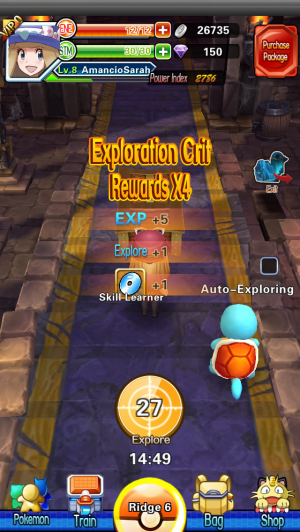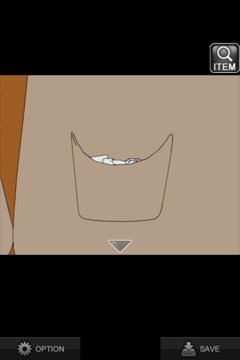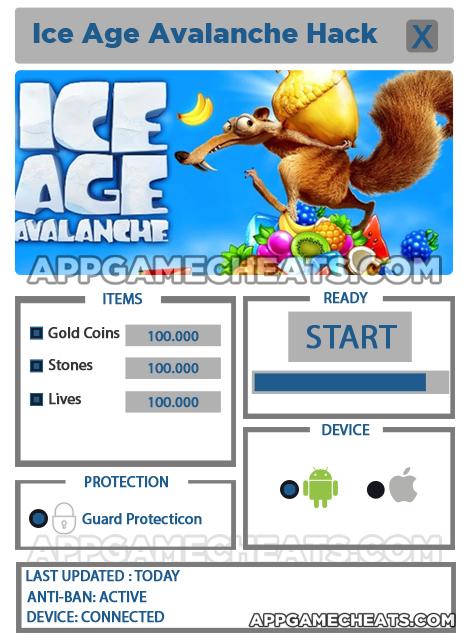

Are you a fan of puzzle games? If you are, maybe you should take a look at a unique game called Hook. It is an engaging minimalist puzzle game from game developer Maciej Targoni (Rainbow Train), who lives in Miedzylesie, Poland. The game first appeared on Kongregate, which is an online games hosting website, that is owned by Gamestop Corporation. Maciej created a five minute sample of Hook on Kongregate. Because of its popularity (The game received 200k downloads.) and requests for more, Maciej created Hook which is now available on Android, iOS, Windows Phone, and has been Greenlit on Steam.
Weekend Play Game Reviews gives Droid Gamers an opportunity to highlight some games that may have been overlooked in a busy week of game releases. Some of the games may have been released a couple of weeks ago, but they still merit reviewing, so you can have an opportunity to catch up on some good gaming during your weekend.
The first striking thing you notice about Hook, is that there are no instructions whatsoever. There isn't a menu screen, or a screen telling you how many levels there are in the game. You jump right into the fray of solving puzzles. How you start the game is a puzzle in itself, albeit an easy one. It is a great prelude for what is to come. At first, all of this may seem a little intimidating and confusing, but it is actually quite refreshing. It is an intellectual pursuit of sorts. So what is Hook exactly?
"Hook is a minimal, relaxing, puzzle game. It is more of a game-like experience than a challenge. No menus, no achievements, just you and a puzzle. The player is surrounded by calming sounds and music. Playing "Hook" is a meditative and calming experience, rarely found in mobile gaming." - Rainbow Train (Maciej Targoni) Still confused? Let me try to explain it in a little more detail.
The game starts off with a series of lines. Most of the lines either have a semicircle, or another line that it intersects with in some way. That means the lines are interlocked at one point or multiple points. At one end of the line is a darkened circle. Touching the circle basically puts the line into action. The line does not move forward, it reverses upon itself until it disappears into the darkened circle. You complete the puzzle by clearing the board of all of the lines. The premise is very simple, clear the board of all the lines. The difficulty is created by figuring out which line to activate first, because the lines are intersecting in different ways. The puzzles basically becomes a matter of understanding sequence. What line do you activate first, to be able to unlock the line that follows it and so on. In the beginning, the puzzles are pretty easy, no real head scratching in those. However, once you get to around puzzle number twenty-five, things become increasingly more difficult, because new elements are thrown into the mix of the puzzles.
The puzzles grow in size and complexity. Granted, you don't know how many puzzles are left at that point, because again, there isn't a menu. A number appears to tell you what puzzle you are on. You can go back to any puzzle you completed before, and up to the latest one you solved. I got hooked on the game early on, because it was elegant in its design and flawless in its implementation. The elements on the screen are always a deep muted gray on a white background. By the time you get to puzzle thirty, the puzzles in some way resemble an electrical diagram. I was playing the game and showed it to someone else, and they had a quizzical expression on their face that basically said, "You call that a game?" I think that is what I enjoyed about Hook. The game reveals itself to you with each puzzle. All you have to do is invest your time and concentrate on what is in front of you. You have to focus to play the game. One wrong move and you have to start the puzzle over. This can be frustrating at times, because in the later puzzles, there are switches that you have to rotate, and sometimes I would solve one side of the puzzle by sheer luck, and make a mistake on the other side. Click, a line is still locked, time to start over.
Aside from the crisp graphics, the music in the game, enhances the meditative atmosphere created by attempting to solve the puzzles. The music and sounds were created by Wojciech Wasiak. The music consists of sparse piano solos, with the sound of wind and waves in the background. I think any other type of music would easily distract you from the puzzles, so the choice of music is quite complementary. There aren't really any other bells or whistles to tack onto the game. The puzzles and presentation are exemplary. $.99 is the price of the game. There are currently fifty puzzles to solve in the game. Depending on your skill level with puzzle solving, you can finish the game in an hour or so, maybe even less, depending on how easily you are or aren't distracted by your surroundings. I know some may harp on the price for the amount of game play, but to me, it is worth it. It was a good experience with a high-quality puzzle game, that is uncommon and enjoyable. I do hope future levels will be added, because there isn't a lot of replay value once you solve all of the puzzles. If you want to try out a few of the puzzles, you can still do so for free on your PC at Kongregate. We have included the link below, because this is a game you have to see/play to really understand how good it can be.
Kongregate: Hook
Hook (Playboard) | Hook (Play Store)




 100 Pics UK Soap Stars Pack Levels 1-100 Answers
100 Pics UK Soap Stars Pack Levels 1-100 Answers Escape Game: “My Girlfriend and the Cafe”: Walkthrough
Escape Game: “My Girlfriend and the Cafe”: Walkthrough All Guess Sneaker 2K16 Answers All Levels
All Guess Sneaker 2K16 Answers All Levels Ice Age Avalanche Cheats & Hack for Gold Coins, Stones, and Lives - AppGameCheats.com
Ice Age Avalanche Cheats & Hack for Gold Coins, Stones, and Lives - AppGameCheats.com Guess The Emoji Answers Levels 61-80
Guess The Emoji Answers Levels 61-80